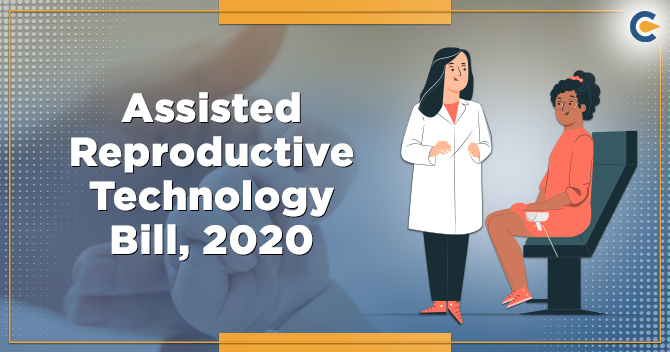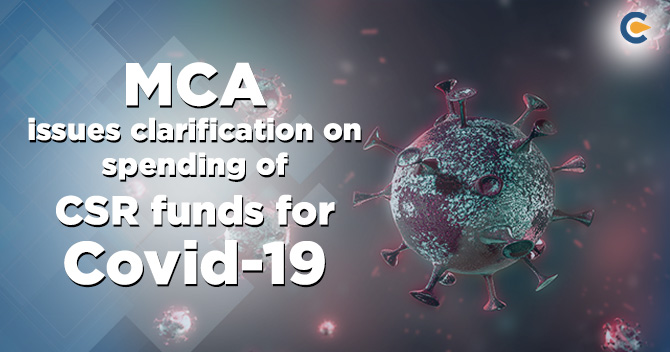The Assisted Reproductive Technology Bill, 2020, was acquainted in Lok Sabha on September 14, 2020. The Bill attempts to provide for the regulation of Assisted Reproductive Technology services in the nation.
Assisted Reproductive Technology (ART)
Assisted Reproductive Technology Bill, 2020represents ART to incorporate all procedures that endeavor to achieve a pregnancy by examining the sperm or the oocyte (immature egg cell) outside every individual body and carrying the gamete or the embryo inside the reproductive system of a woman. Examples of ART cover gamete (sperm or oocyte) donation, in-vitro-fertilization (breeding an embryo in the lab), including gestational surrogacy (the child is not biologically associated with a surrogate mother). ART assistance will be implemented within:


Regulation of Assisted Reproductive Technology Bill, 2020 on clinics and banks
This Bill presents that each ART clinic and the bank must be enrolled under the purview of the National Registry of Banks and Clinics of India. The National Registry will be authorized under the Bill and will function as a central data base with details of all ART clinics and banks. State governments will designate registration authorities to facilitate the registration process. Clinics and banks will be listed if they adhere to specific standards (specialized employees, physical infrastructure, and diagnostic facilities). The registration will validate for five years and can be restored for five years more. Registration may be revoked if the entity violates the requirements of this Bill.
Read our article:Highlights on The Appropriation Bill, 2020
Conditions for Gamete Donation and Supply
A registered ART bank can only do the screening of gamete donors, accumulation and accommodation of the semen, also preparation of oocyte donor. A bank can receive semen from males between 21 and 55 years of age, and oocytes of females within 23 to 35 years. An oocyte donor should be a married woman having at least one alive child of her own(minimum of three years of age). The woman can give oocyte only once in her life, and not more than seven oocytes can be retrieved from her. A bank cannot provide a single donor to more than one commissioning couple (couple seeking services).
Conditions for Offering ART services
ART methods can only be carried out with the written consent of both the party seeking ART services and the donor. The party seeks ART services that will be required to provide insurance coverage in favor of the oocyte donor (in case of any loss, damage, or death of the donor). A clinic is prohibited from offering to give a child of pre-determined sex. The Bill also entails checking for genetic diseases before embryo implantation.
Rights of the Further child born through ART
A child born through ART will be considered as a biological child of a couple and will be authorized to the rights and privileges available to the commissioning couple’s natural child. Further, the donor will not have any parental rights over the child.
National and State Boards
Assisted Reproductive Technology Bill, 2020 provides that the National and State Boards for Surrogacy authorized under the Surrogacy (Regulation) Bill, 2019, will now act as the National and State Boards to regulate ART services.
Essential powers and functions of the National Board include
- suggesting the central government on ART related policy concerns,
- analyzing and observing the implementation of the Bill,
- forming code of conduct and the standards for ART clinics and banks, and
- Supervising various bodies to be commissioned under the Bill. The State Boards will regulate the enforcement of ART’s methods and guidelines as per the National Board’s recommendations, policies[1], and regulations.
Offenses and penalties under Assisted Reproductive Technology Bill, 2020
Offences under this Bill includes-
- To abandon or exploit children born through ART,
- To sell, purchase, trade, or import human embryos or gametes, (iii) using an intermediary to obtain donors,
- Abusing the commissioned couple, woman, or the gamete donor in any form, and
- Transporting the human embryo into a male or an animal. These offenses will be punishable with a fine between five and ten lakh rupees for the first contravention. For subsequent contraventions, these offenses will be punishable with imprisonment for a term between eight and twelve years and/or fine between ten or twenty lakh rupees.
- Any clinic or bank advertisement or offering any sex-selective ART will be punishable with imprisonment for five and ten years, or fine Rs ten law thinks to Rs twenty-five lakh or both.
- No court will take cognizance of offenses under the said Law, except in case any complaint made by the National or State Board or any officer authorized by the Boards.
Conclusion
Apart from the aspects mentioned above, there are several different aspects connected to the surrogate mother and the child’s rights. The Assisted Reproductive Technology Bill, 2020 lacks in clarity and transparency required to protect these rights if legal issues arise sufficiently. It is imperative that before the Bill has enacted, these aspects are ironed out for it to regulate the ART process in the country effectively.
Read our article:PM Launches Swamitva Yojana: What is it all about?
THE-ASSISTED-REPRODUCTIVE-TECHNOLOGY-REGULATION










